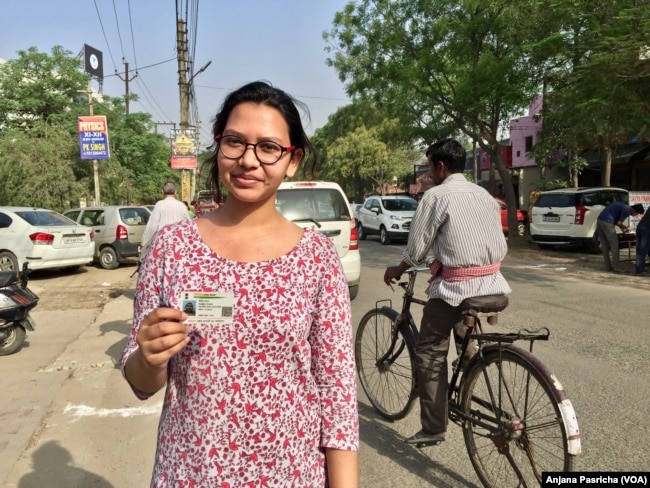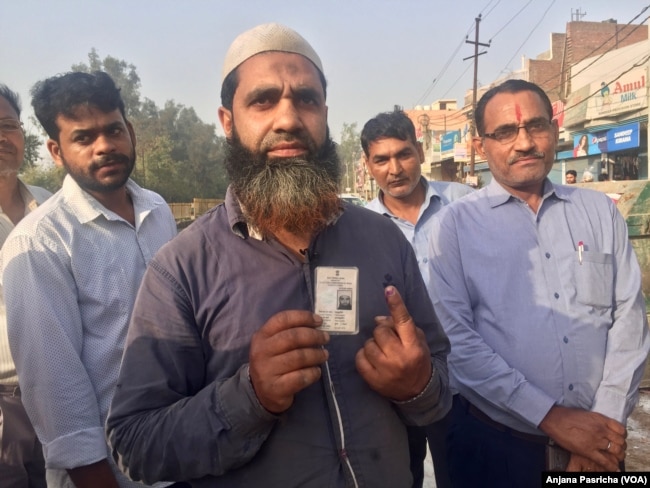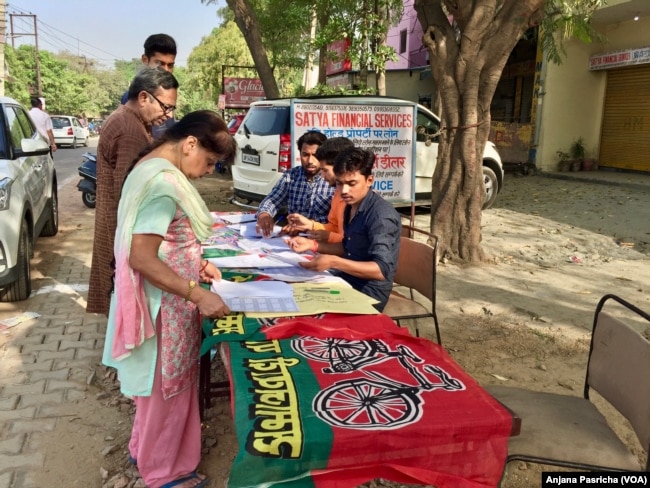India began the mammoth task of choosing its next government as voters lined up at polling booths stretching from the violence-wracked region of Kashmir in the north to eastern and central states, VOA news reports.
In an election that has been billed as a referendum on Prime Minister Narendra Modi, his Hindu nationalist Bharatiya Janata Party is widely expected to emerge as the single largest party, but fall short of the commanding majority it won in 2014.
Modi’s main challenger is Rahul Gandhi, the head of the opposition Congress Party whose hope for a surge in support rests on his promise of tackling poverty.
More than 140 million out of the country’s 900 million voters were eligible to cast ballots in Thursday’s contest for 91 out of 543 parliamentary constituencies.
The world’s largest democratic exercise presents dramatic contrasts: from polling stations guarded by heavily armed security personnel in violence-wracked regions such as Kashmir and Chattisgarh to a festive atmosphere in other places. At one polling station in the northern state of Uttar Pradesh, voters were greeted with the beat of drums.
Just before polls opened, Prime Minister Modi, who has made national security his key plank, called on people to vote in “record numbers” and made a special appeal to India’s staggering 85 million voters who joined the electoral rolls this year. “I specially urge young and first-time voters to vote in large numbers,” he tweeted.
“I am excited. I am a part of this democracy now. I have the right to choose and to go with some government I want,” said a smiling Neelisha Singhal, a 20-year-old college student as she waited for her turn to vote.
The polls take place against the backdrop of concerns among minority communities that religious tensions have aggravated under BJP rule with rising numbers of attacks by fringe Hindu groups targeting Muslims. It has stoked fears among critics that the BJP wants to impose a Hindu nationalist agenda.
Faimudadin, 40, a voter in western Uttar Pradesh, who came out early to cast his vote hopes that opposition parties will join hands to form a government. “I want a change. I want development.”
Others like Seema Verma in Gaziabad on New Delhi’s outskirts are voting to give Modi a second term in office. “The government has a done of lot of good work. I am satisfied with its performance.”
On the campaign trail, Modi has been firing up nationalist pride emphasizing his action in ordering an airstrike inside Pakistan to target an alleged militant training camp following a terror attack in Pulwama in Kashmir in February. In remarks that were slammed by critics, he called on first-time voters at a rally on Tuesday, “Can your first vote be dedicated to the courageous soldiers who did the Balakot air strike? Can your first vote be in the name of the courageous martyrs who lost their lives in Pulwama?”
The party that won power in 2014 on its promise of “good days to come” has brushed aside questions on its poor record of creating jobs and improving the rural economy.
The main opposition Congress Party hopes to tap into disgruntlement over rising unemployment and distress in the countryside where two thirds of India lives. Congress party head Rahul Gandhi, joined by his sister Priyanka Gandhi on the campaign trail, has also accused Modi of destroying India’s secular traditions. Rahul Gandhi’s hopes of returning to power rest on stitching up alliances with powerful regional parties.
Several states such as Andhra Pradesh and Telangana that went to the polls are governed by regional parties. These parties are expected to play a key role in forming the next government as the BJP may not secure a clear majority.
The polls were mostly peaceful but scattered violence was reported. One person was killed and four injured in a clash in the southern Andhra Pradesh. In Chattisgarh suspected Maoist rebels detonated an explosive devise early Thursday, but no injuries were reported. Election officials said people in the state turned out in large numbers to vote despite a call to boycott the polls.
The polls will wrap up on May 19 after moving across the country over six more days. Votes will be counted on May 23rd.
If the BJP emerges as a frontrunner, “it will be a mandate drawn by populist nationalism and fusing this with some kind of religious polarization,” says political analyst Nilanjan Mukhopadhyay. “Then it means that this politics is getting endorsed.”




